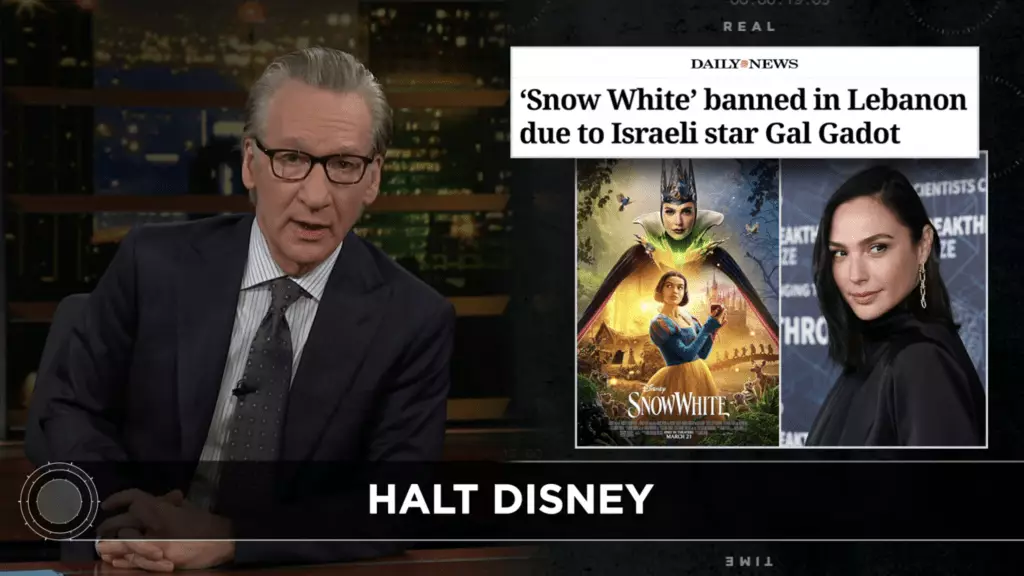Disney’s live-action adaptation of *Snow White* has stumbled into a quagmire of controversy, drawing ire not just for its box office underperformance but also for the cultural implications tied to its cast. The film’s beleaguered status has provided ample fodder for commentators, such as Bill Maher, who lampoons the situation on his show, *Real Time*. Maher’s quip about Lebanon’s ban on the movie highlights an interesting intersection of geopolitics and entertainment. He cheekily suggests that Lebanon is taking its protests too seriously, pointing out that the adaptation would likely fail to captivate audiences regardless of its stars.
Geopolitical Implications of a Modern Fairytale
The controversy surrounding *Snow White* raises crucial questions about the role of celebrity in international politics. At the center of the storm is Gal Gadot, an Israeli actress and former sergeant in the Israeli Defense Forces (IDF). With Lebanon instituting a ban on the film due to her starring role—reflecting longstanding tensions in the region—this situation underscores how entertainment can become intertwined with national narratives. In a culture where media shapes perceptions and political sentiments, the backlash against Gadot serves as a reminder of how public figures can become symbols of larger historical grievances.
Box Office Woes: Beyond the Controversy
While the backlash against Gadot may have influenced Lebanon’s decision, it is essential to note that *Snow White* has, by many accounts, been labeled a financial flop even before the ban. With estimates indicating a staggering loss of approximately $115 million since its domestic release on March 21, one must examine the reasons behind this collapse. Issues such as storytelling quality, audience engagement, and strong competition from other blockbusters may also be significant culprits contributing to its underwhelming performance. If a film of such iconic stature fails to draw in viewers, it highlights a disconnection between the expectations of the audience and the execution of the adaptation.
Sparking Conversations on Representation and Diversity
Moreover, the film’s co-star, Rachel Zegler, has found herself at the crossroads of scrutiny as well. Her past criticisms of Donald Trump and the fact that she does not conform to traditional casting norms adds layers to the film’s controversies. Her representation in a historically white role adds a fresh perspective but has drawn critiques from some who feel that Hollywood’s push for diversity has outpaced meaningful storytelling. The backlash surrounding casting choices in films like *Snow White* prompts a broader conversation about representation in media, challenging the status quo while often igniting fierce debates among audiences.
The Future of Live-Action Fairy Tales
The setbacks experienced by *Snow White* may not only reflect the challenges facing this particular film but could signal a larger trend within Disney’s ongoing quest to revitalize its animated classics. As audiences become increasingly discerning, the balance between nostalgia and contemporary relevance becomes crucial for the success of future projects. Adaptations must not only captivate audiences with beloved tales but also resonate with the evolving societal values of representation, inclusion, and cultural sensitivity. In an age where content consumption is complex and influenced by multiple factors, the road ahead for Disney’s adaptations may require a reevaluation of their approach, particularly in a polarized cultural landscape.
